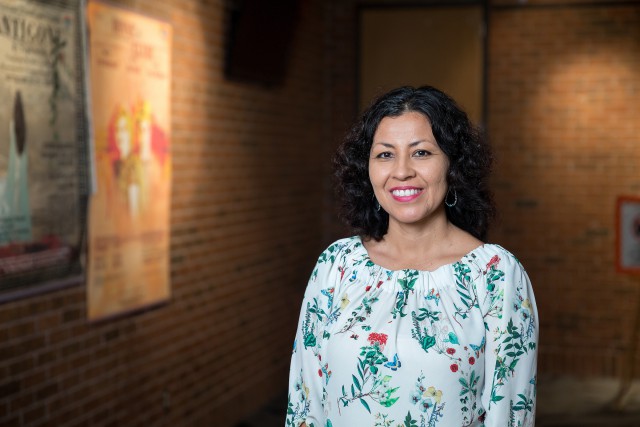poets tell important stories

Emmy Pérez is the author of With the River on Our Face (University of Arizona Press, 2016) and Solstice (Swan Scythe Press, 2003 and 2011). Originally from Santa Ana, California, she earned her BA from the University of Southern California and her MFA from Columbia University. Her work has been published in journals such as North American Review, Prairie Schooner, Mandorla, and Newfound;and in anthologies including Happiness: The Delight Tree (2015), New Border Voices: An Anthology (2014), A Broken Thing: Poets on the Line (2011), The Wind Shifts: New Latino Poetry (2007), and Ghost Fishing: An Eco-Justice Poetry Anthology (forthcoming 2018).
Pérez has held writing residencies at the MacDowell Colony, the Ucross Foundation, the Atlantic Center for the Arts, and the Fine Arts Work Center in Provincetown. A CantoMundo fellow from 2010 to 2012, she has been an active member of the Macondo Writers’ Workshop founded by Sandra Cisneros for socially engaged writers since 2008. She has been the recipient of the Alfredo Cisneros Del Moral Foundation Award, the James D. Phelan Award, and she has received poetry fellowships from the Fine Arts Work Center in Provincetown and the New York Foundation for the Arts. In 2012, she was the recipient of a UT Regents’ Outstanding Teaching Award.
Pérez has also taught writing at the University of Texas at El Paso and in adult and juvenile detention centers. Currently, she is an associate professor at the University of Texas Rio Grande Valley, where she teaches in the MFA and undergraduate creative writing programs. She has lived on the U.S-Mexico border since 2000.
Not one more refugee death
A river killed a man I loved,
And I love that river still
—María Meléndez









